Cultural Marxism 8: Matter
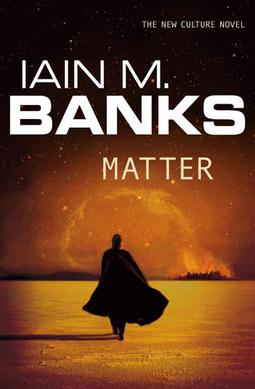 After an eight year furlough, Iain M. Banks returned to the Culture series in 2008 with Matter, the longest Culture novel to date. The problem is that it’s not entirely clear why he did this. Matter, to put it bluntly, is a mess. Were it not for Consider Phlebas’s intense lack of quite knowing what it wanted to do with this “Culture” idea, Matter would straightforwardly be the weakest novel in the series to date. The problem, from what I gather, is not that Banks has run out of ideas. I’ve not read Surface Detail or The Hydrogen Sonata yet, but they are apparently perfectly good books. It’s just that Matter… isn’t.
After an eight year furlough, Iain M. Banks returned to the Culture series in 2008 with Matter, the longest Culture novel to date. The problem is that it’s not entirely clear why he did this. Matter, to put it bluntly, is a mess. Were it not for Consider Phlebas’s intense lack of quite knowing what it wanted to do with this “Culture” idea, Matter would straightforwardly be the weakest novel in the series to date. The problem, from what I gather, is not that Banks has run out of ideas. I’ve not read Surface Detail or The Hydrogen Sonata yet, but they are apparently perfectly good books. It’s just that Matter… isn’t.
This is not a hugely controversial opinion about Matter. Most of the diagnoses center on the ending, which amounts to basically every major character in the book dying in rapid succession, starting when an ancient planet-killing machine wakes up with very little setup and eliminates the entirety of one of the three plot lines that had been occupying the book thus far, and culminating when everyone else dies stopping it. This has led to suggestions that Banks’s heart simply wasn’t in the book, or that he got bored writing it.
Color me dubious. The abrupt slaughter of the ending is too particular to be a mere product of laziness. Banks, who after all had a second career as a literary novelist, would surely have been aware of Fay Weldon’s 1986 novel The Shrapnel Academy, which famously and cavalierly ends with a bomb going off in a country manor and killing all of the characters. In Weldon’s case this is the cruel end to a blistering satire of class and militarism. Here it’s more of an abrupt turn—the book becomes a very different thing with relatively little notice. But there’s still a deliberate transgressiveness that suggests that Banks did not simply get tired of the book and write a two chapter equivalent of “rocks fall everyone dies.”
Nor does it quite work to say that Banks’s heart wasn’t in the book. The book is too substantial for that. In publicity for the book, Banks excitedly talked about how “it’s a real shelf-breaker” with four thousand words “of appendices and glossaries. It’s so complicated that even in its complexity it’s complex. I’m not sure the publishers will go for the appendices, but readers will need them. It’s filled with neologisms and characters who disappear for 150 pages and come back.” There are sizable enough chunks cut that he published one as a short story for a convention-exclusive book. None of this sounds half-hearted; it sounds like Banks tried to return to the Culture with an absolute barnstormer of a book.
And yet Matter is weak, and for reasons that go beyond its ending. It’s just kind of a boring book. It follows three main viewpoint characters (albeit with lots of excursions to other perspectives), the surviving children of King Hausk, the monarch of a race called the Sarl that live on the eighth level of what’s called a Shellworld—a planet comprised of nested levels.…

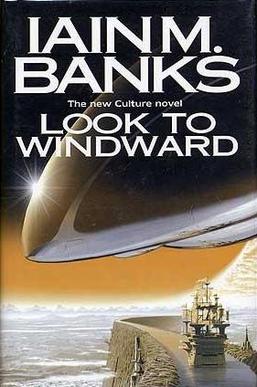 Banks published the Culture novels in essentially three chunks during which he’d write one every other year and between which he basically didn’t touch the setting. The first, consisting of everything through
Banks published the Culture novels in essentially three chunks during which he’d write one every other year and between which he basically didn’t touch the setting. The first, consisting of everything through 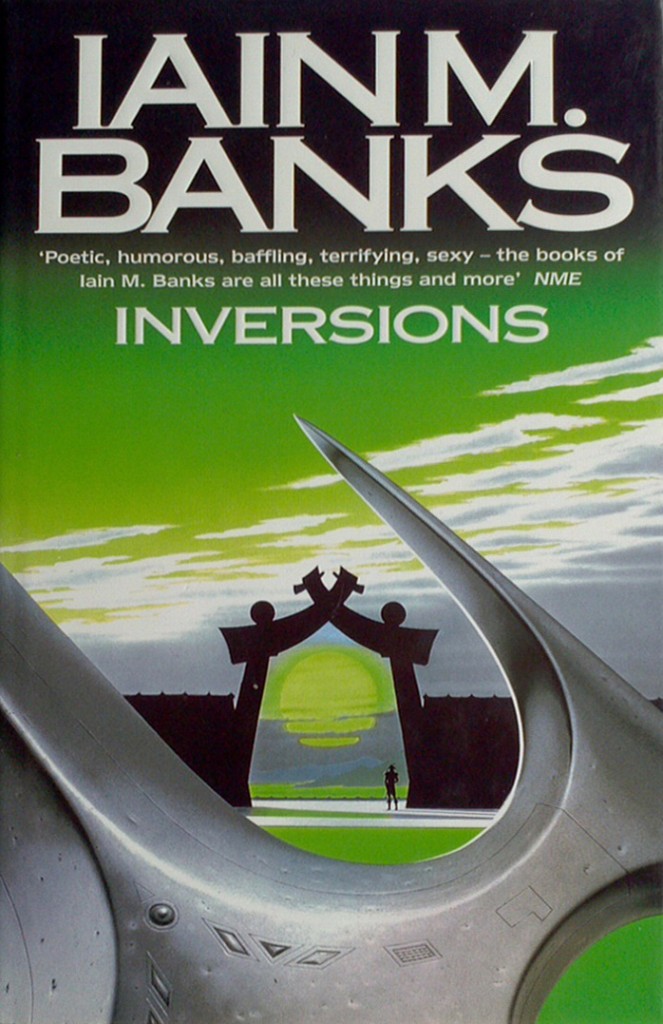
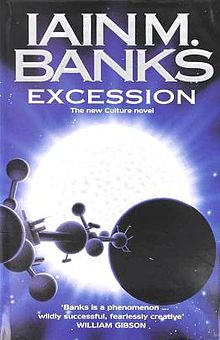 Reflecting on the fact that his last book was going to turn out to be the relatively slender and small-scale
Reflecting on the fact that his last book was going to turn out to be the relatively slender and small-scale 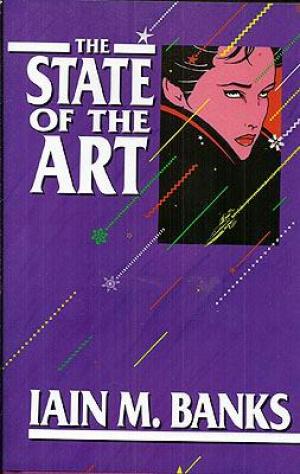 “The State of the Art” surrounds
“The State of the Art” surrounds 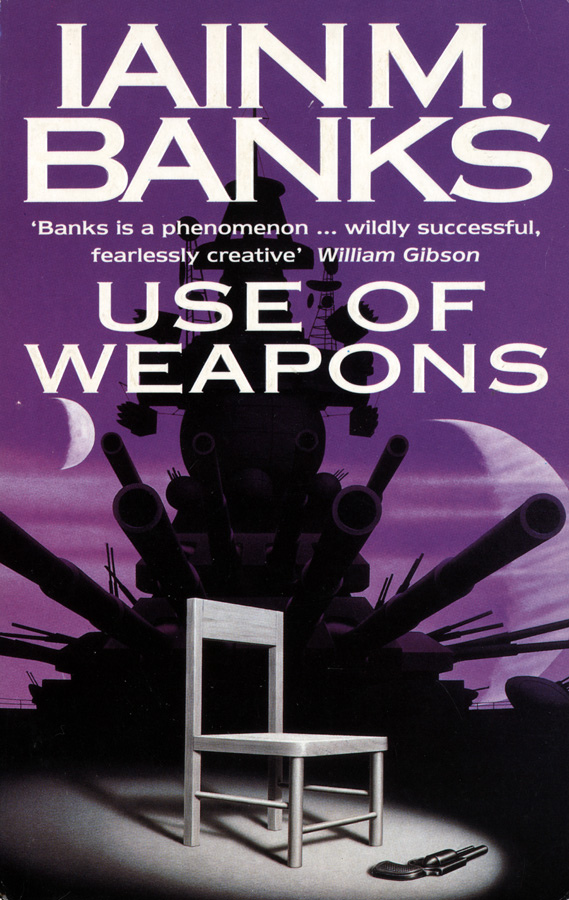 Use of Weapons
Use of Weapons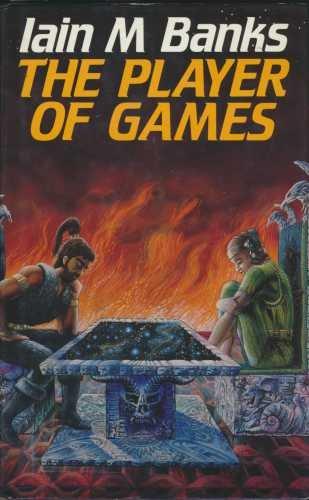 With The Player of Games, Banks’s series immediately becomes the legend of science fiction that it is. Simply put, it’s one of the most compelling premises in science fiction, on par with A Canticle for Leibowitz or The Restaurant at the End of the Universe: a post-scarcity utopia that conducts warfare via a board game.
With The Player of Games, Banks’s series immediately becomes the legend of science fiction that it is. Simply put, it’s one of the most compelling premises in science fiction, on par with A Canticle for Leibowitz or The Restaurant at the End of the Universe: a post-scarcity utopia that conducts warfare via a board game.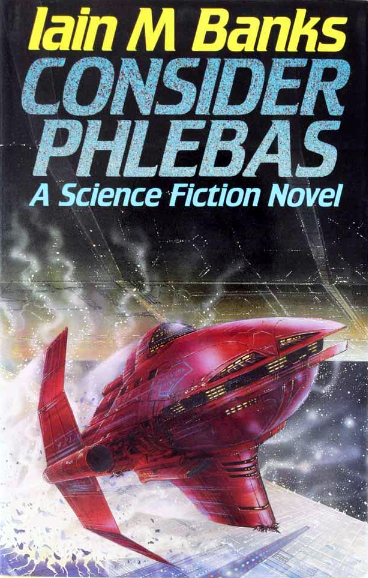 Consider Phlebas
Consider Phlebas